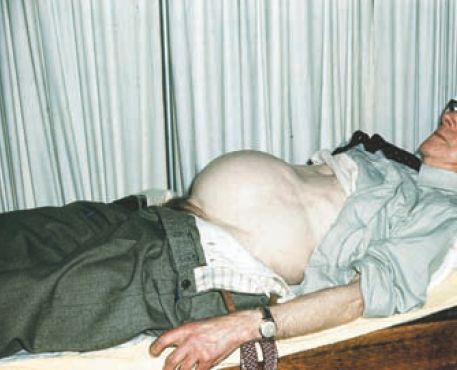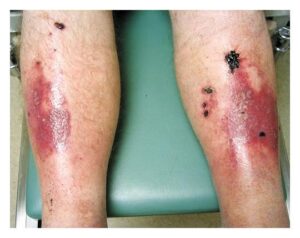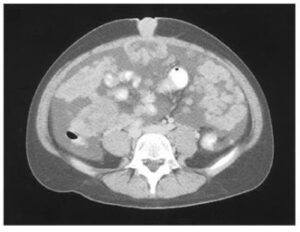This post is an answer to the Case – Patient with a very Distended Bladder
The patient has chronic retention of urine, due to a clinically benign prostatic hyperplasia . Acute retention is extremely painful, but, in the chronic case, the bladder becomes progressively and gradually distended. The intense frequency in these patients is actually dribbling of urine from the full bladder, the so-called ‘retention with overflow’ or ‘overflow incontinence’.
In this patient, the investigations were within normal limits, apart from a raised creatinine (154 μmol/L) and the ultrasound scan, which confirmed a large prostate, distended bladder and mild bilateral hydronephrosis.
A transurethral resection of the prostate was performed. He had a reasonably smooth postoperative course and his prostatic tissue was benign on histological examination.
Apart from benign prostatic hypertrophy, what other local causes are there for retention of urine?
As with any obstructed tube in the body, think of ‘causes in the lumen, in the wall and outside the wall’:
- Within the lumen of the urethra: Stone or blood clot (‘clot retention’).
- In the urethral wall: Urethral stricture
- Outside the wall: Carcinoma of the prostate or occasionally pressure from faecal impaction or from a pelvic tumour.
What may be the causes of retention of urine in the absence of an actual urethral obstruction?
The ‘general’ causes of retention of urine may be classified into:
- Postoperative.
- CNS disease, e.g. paraplegia from trauma, tumour, etc., multiple sclerosis, diabetes mellitus.
- Drugs, e.g. anticholinergics, tricyclic depressants.



